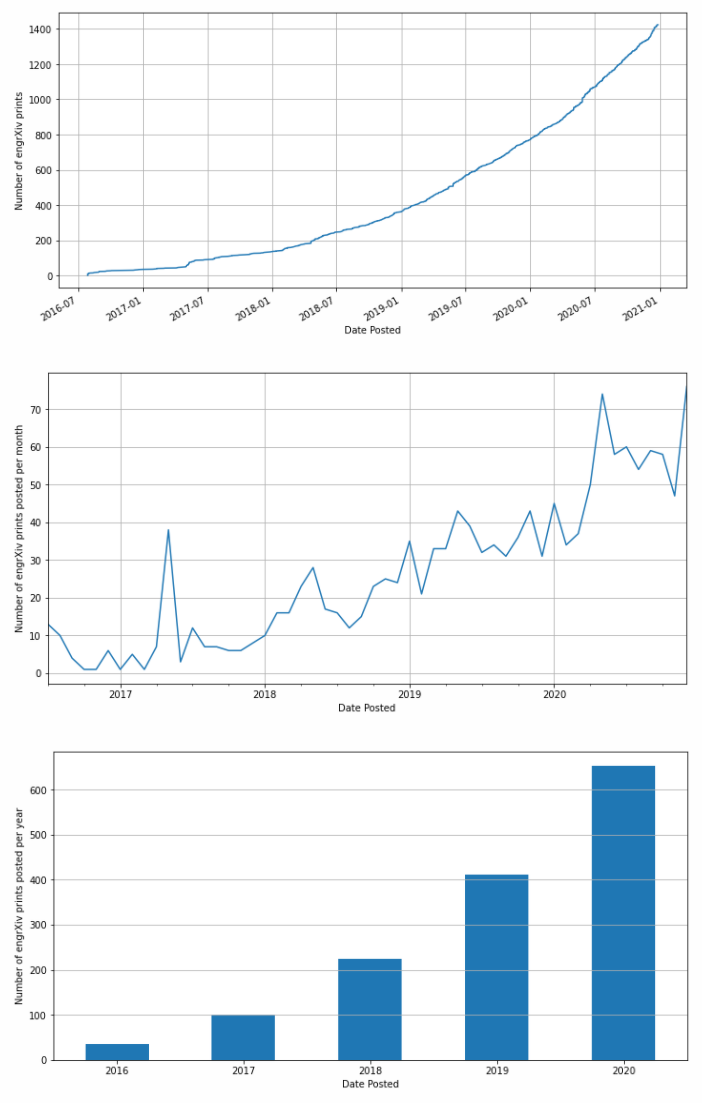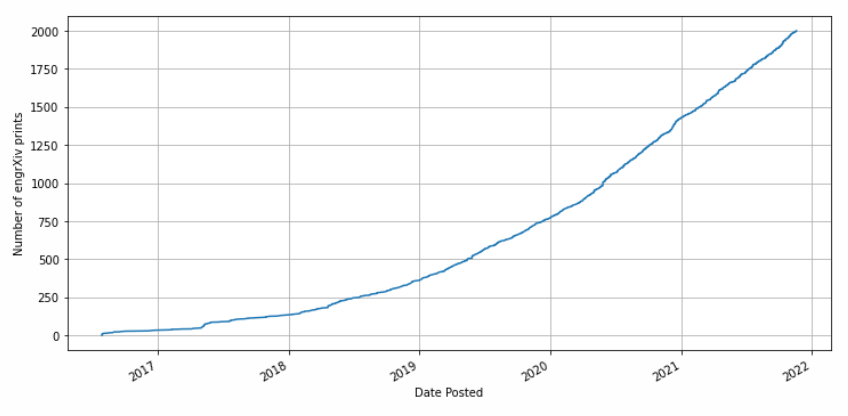Well, it’s been a year. And that’s about all we can say about 2020. Here at Engineering Archive, the growth of engineering preprint submissions has continued with 670 submissions on the year, bringing the server’s total hosted preprints to 1447, up from 777 at the same point in 2019.

In 2020, we have also seen a continuing trend of higher monthly submission rates, with December receiving the highest number of submissions of any month in our 4.5 year history!
Preprints hosted on engineering archive have now received more than 620,000 downloads, more than doubling the cumulative total downloads at the end of last year! This results in a lifetime savings of at least $15,500,000 for the engineering community if every one of those downloads represented the purchase of a PDF from a paywalled article.
As a grassroots organization, we continue to rely on the support of our community stakeholders for financial sustainability. We welcome and eagerly request your financial support through a donation to Open Engineering, a 501(c)(3) nonprofit organization for the promotion of open practices in engineering in all forms, which supports Engineering Archive. Donations are needed!
We also appreciate the support of the Engineering Archive Membership Circle. The Membership Circle creates the opportunity for institutions, libraries, and other organizations to support the sustainability of the server through a $500 annual contribution. We are especially grateful for those members who have already renewed their membership for a second year!
With the difficult financial situation that many institutions have found themselves in this year, we are in need of new institutional members to maintain support at the level needed for the annual operations of the server. Interested individuals can reach out to info@engrxiv.org to learn more.
Again, THANK YOU SO MUCH to those who have already joined us in creating a sustainable future for open access engineering scholarship and to those of you planning to lend your support soon!



